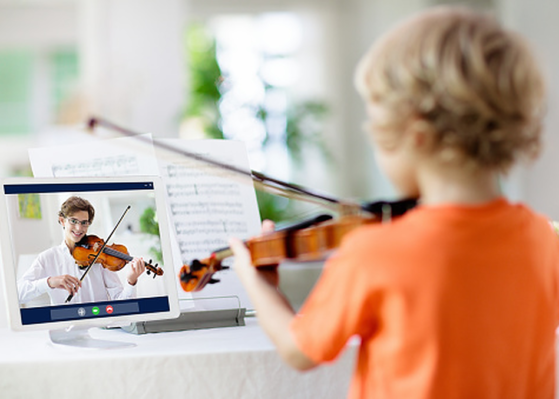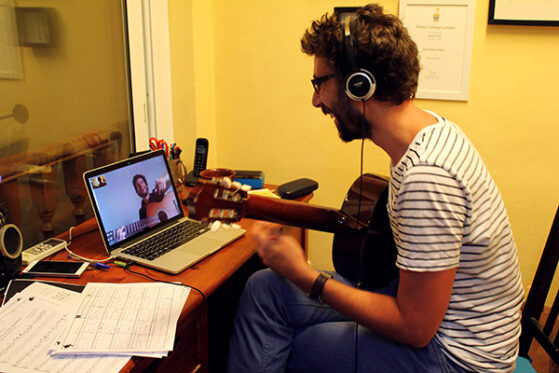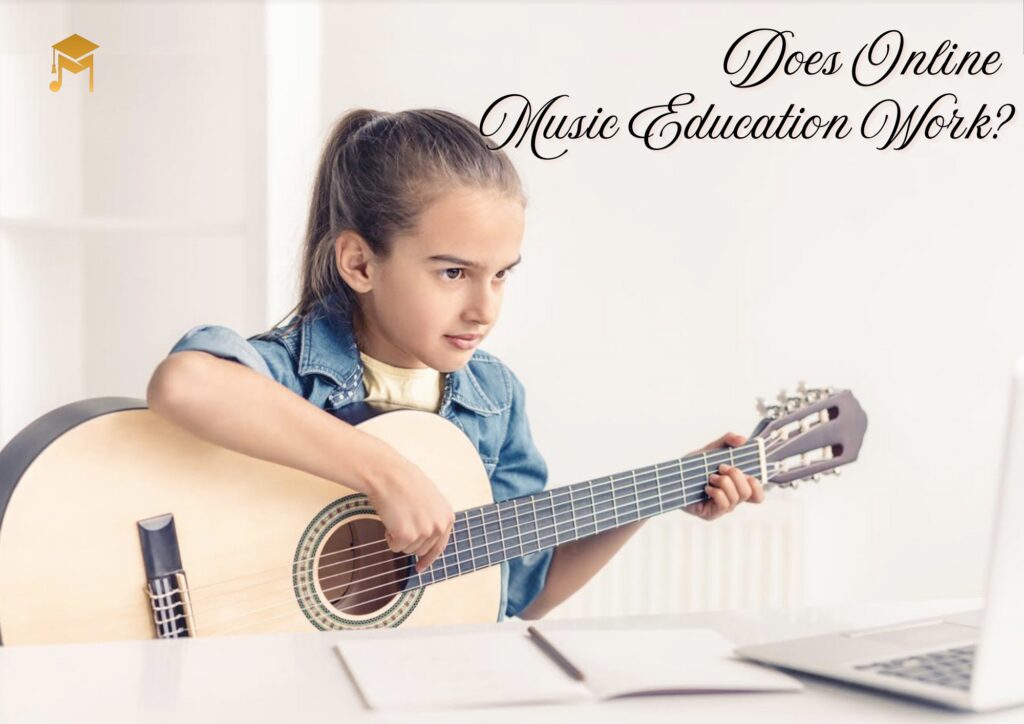Does Online Music Education Work?
The rise of online music education has revolutionized how people engage with music. As technology integrates more deeply into our daily lives, traditional music instruction methods are being reshaped. This shift offers a flexible and accessible alternative for learners of all ages and abilities. In this blog, we’ll explore the effectiveness of this modern approach by examining its benefits and potential future in the evolving world of music education.

The Evolution of Music Education
Historically, music education was conducted in-person, requiring students to attend classes at set times and locations. This traditional approach offered direct interaction with instructors, peer collaboration, and immediate feedback. However, it also came with limitations like geographical constraints, scheduling conflicts, and high costs.
With the rise of the internet, technology has introduced a more flexible and accessible way to learn music. Online platforms, video conferencing, and other resources now allow students to learn from home, raising questions about how this compares to traditional methods.

Benefits of Online Music Education
Accessibility and Flexibility
One of the primary advantages of online music education is its exceptional accessibility. For instance, students from various geographical locations, including remote areas, can access high-quality music instruction without traveling. This shift not only democratizes music education but also opens up opportunities for individuals who might have been excluded from traditional programs.
Moreover, online lessons provide outstanding flexibility. Students can choose lesson times that fit their schedules, making it easier to balance music education with other responsibilities like school, work, and family. As a result, this flexibility boosts motivation and strengthens commitment to learning, allowing students to engage with lessons when it’s most convenient for them.

Variety of Learning Resources
In a similar vein, online music education provides students with a vast array of resources that go beyond traditional lesson materials. For instance, video tutorials, interactive apps, and online forums allow students to explore various musical concepts at their own pace. As a result, this plethora of resources caters to different learning styles and preferences, significantly enhancing the overall learning experience.
Moreover, students have the option to revisit recorded lessons or access supplementary materials whenever necessary. This self-paced learning model, in turn, fosters greater independence and encourages self-discipline—qualities that are crucial for any musician.

Diverse Instructional Approaches
In addition to offering a variety of resources, online music education also accommodates a wide range of instructional methods. From structured curriculum-based learning to more exploratory and improvisational approaches, online platforms offer a flexibility that is often absent in traditional settings. As a result, students can discover a learning style that resonates with them, whether they prefer traditional classical training or more contemporary genres like pop, jazz, or electronic music.
Furthermore, these platforms enable students to connect with a broader range of instructors. As a result, they can choose to study with experts from various backgrounds and specialties, which enriches their musical education and expands their horizons.

Community and Collaboration
Finally, online music education nurtures a sense of community and fosters collaboration among students. Many platforms provide opportunities for learners to engage in virtual ensembles, participate in forums, or join group classes. Consequently, students develop a sense of belonging and shared learning experiences.
Additionally, these collaborative opportunities help students build essential skills such as teamwork and communication—skills that are vital in music performance and composition. Therefore, the sense of community in online learning can be as impactful as in traditional environment.

The Future of Online Music Education
The future of online music education appears promising. As technology continues to advance, we can expect innovative approaches to emerge that enhance the learning experience. Here are some potential trends to watch for:
Enhanced Interactivity
As technology evolves, online platforms will likely become more interactive, incorporating augmented reality (AR) and virtual reality (VR) elements. These advancements can create immersive learning environments, allowing students to engage with music in new and exciting ways.Personalized Learning
Online music education can leverage data analytics and artificial intelligence (AI) to provide personalized learning experiences. Adaptive learning systems can assess students’ progress, identify areas for improvement, and tailor lesson plans to suit individual needs and goals.
Hybrid Models
The future may see a blend of online and in-person instruction, offering students the best of both worlds. Hybrid models can combine the convenience of online lessons with occasional in-person workshops, masterclasses, or performances, fostering a sense of community while maintaining flexibility.Global Collaboration
As online music education continues to grow, opportunities for global collaboration will likely expand. Students can participate in international ensembles, cultural exchanges, and collaborative projects that expose them to diverse musical traditions and styles.

Conclusion
In conclusion, online music education has proven to be an effective alternative to traditional music instruction, offering numerous benefits that enhance the learning experience for many students.
As technology continues to evolve, online music education will likely become an increasingly integral part of the music learning landscape, providing opportunities for students worldwide to pursue their passion for music. Ultimately, the key to success in music education lies in the commitment to practice, creativity, and a genuine love for music.








